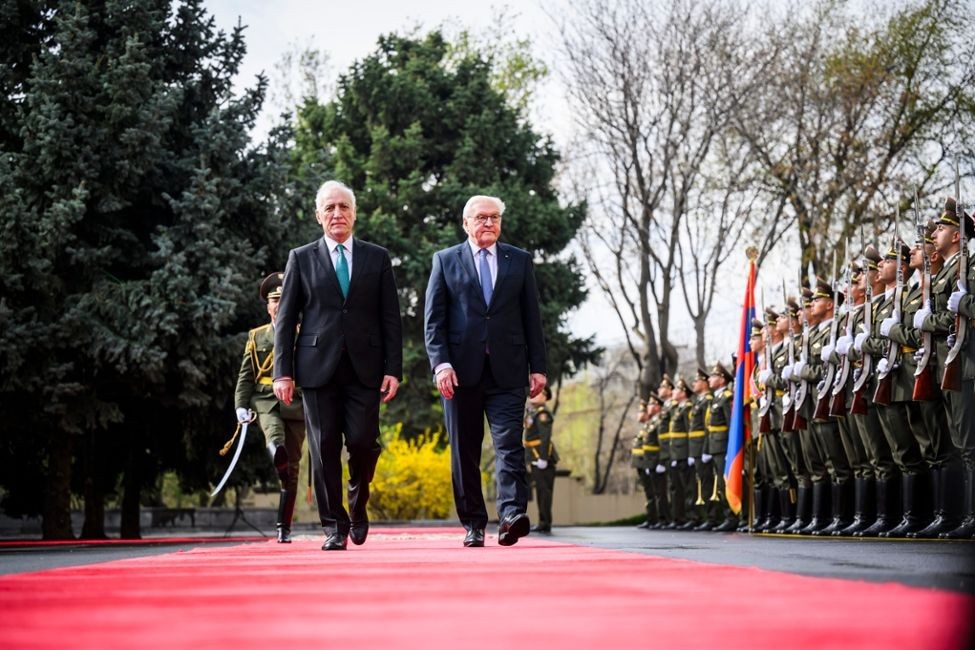Germany wants peace in the South Caucasus, President Steinmeier says during historic Armenian visit

On the second day of his historic visit to Armenia on Monday, German President Frank-Walter Steinmeier congratulated the progress made so far on a peace treaty between Armenia and Azerbaijan.
‘In Germany and Europe, there is great interest for stability to prevail in the South Caucasus region’, Steinmeier said, adding that ‘the parties should use this appropriate moment for lasting and sustainable peace to be established in [the] South Caucasus’.
He also spoke favourably about the state of bilateral relations between Armenia and Germany, and said ‘We are very happy in Germany about Armenia’s interest in the EU’.
Breaking with the decades of Armenia’s geopolitical stance since independence, the country has made unprecedented moves toward EU accession in recent months.
Steinmeir’s visit marks the first time a German president, a largely ceremonial position, has visited Armenia, or Azerbaijan, where Steinmeier will travel to in the upcoming days.
According to the official schedule shared on the president’s website, Steinmeier is meeting with Armenian President Vahagn Khachaturyan and Prime Minister Nikol Pashinyan for talks in Yerevan. He will also travel to other parts of the country, and has already visited the Tsitsernakaberd Memorial Complex, Yerevan’s museum dedicated to the Armenian Genocide.
Steinmeier’s trip to Baku will last only one day before he returns to Berlin, but he is scheduled to meet with President Ilham Aliyev for talks, as well as conduct a joint press conference.











